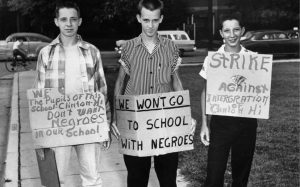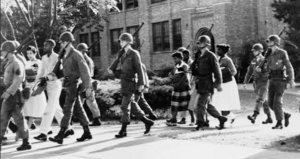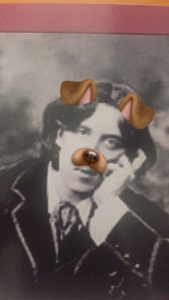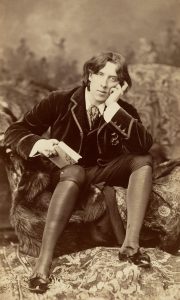Dorian Gray – Oscar Wilde
“Basil Hallward is what I think I am: Lord Henry what the world thinks me: Dorian what I would like to be – in other ages, perhaps”Considering what you know about Oscar Wilde’s background, respond to the above statement in a blog post (essay style). Make reference to the text in your response. Cite any sources you use.
This is a very interesting quote from Wilde as many critics and people accused and assumed that Wilde was gay for writing a story with homosexual underlines. Many also thought that Lord Henry was based on himself. Wilde addressed the critics with this single quote on his views of his personality. Wilde might think of himself as Basil as he writing this novel might have been inspired by his lover, like that of Basil and his work with Dorian. But keeping in might Wilde’s time period, we know that being or indulging in homosexual experiences was a criminal offense. So, Wilde comparing himself to Basil, who was the most humane character in the novel, to seem more innocent in his personal life, to seem more like a worker who is more obsessed with art then romance or friends.
With Lord Henry, its pretty self-explanatory, Lord Henry was basically the bad influence that corrupted Dorian Gray. Although Lord Henry is full of epigrams, which Wilde is most known for, that might not necessarily mean that Lord Henry is representative of Wilde’s personality. Personally, I cannot make an opinion about someone without knowing them. Yes, I see the similarities between the two but I also see the differences. So saying Lord Henry is based off Wilde himself is hard to say.
With Dorian Gray, it’s easier to make assumptions and feel confident with them. Dorian is considered this beautiful person that enchants everyone he meets, so naturally being a “Dandy,” that is their goal and Wilde being a dandy, this could have been what be meant by saying that he considered himself as Dorian. Another assumption is that like Dorian, he was influenced by his lover to be in a homosexual relationship, meaning that his lover was Lord Henry. Because Wilde was married and was mostly straight his whole life when he met his lover he got introduced to the world of homosexuality and got inspired to write this novel. He could have seen homosexuality as something like Romeo and Juliet, a forbidden love. Even though he denies having traits of these characters, I believe that is a lie, as all writers write their characters somewhat based on themselves.











 The Victorian Era focused so highly on appearances and image, that it was total hypocrisy. A commonly seen example of this deception was the events that the higher or wealthy class would constantly host in order to help the lower class. It was a general occurrence for lunch, dinner, or ballroom events to be set up with the purpose of collecting money in order to donate it to the working classes, or to foundations with the purpose of helping the less fortunate. The truth behind these events was that if a person from the higher class would encounter someone from the lower class, they would completely disregard them or be disturbed by their presence. Another angle that displays this hypocrisy, is that many of the families who were ‘raising money’ to help the poor, were also the ones forcing them to do heavy labor without rest in unethical conditions, and the ones paying them barely enough to live.
The Victorian Era focused so highly on appearances and image, that it was total hypocrisy. A commonly seen example of this deception was the events that the higher or wealthy class would constantly host in order to help the lower class. It was a general occurrence for lunch, dinner, or ballroom events to be set up with the purpose of collecting money in order to donate it to the working classes, or to foundations with the purpose of helping the less fortunate. The truth behind these events was that if a person from the higher class would encounter someone from the lower class, they would completely disregard them or be disturbed by their presence. Another angle that displays this hypocrisy, is that many of the families who were ‘raising money’ to help the poor, were also the ones forcing them to do heavy labor without rest in unethical conditions, and the ones paying them barely enough to live.